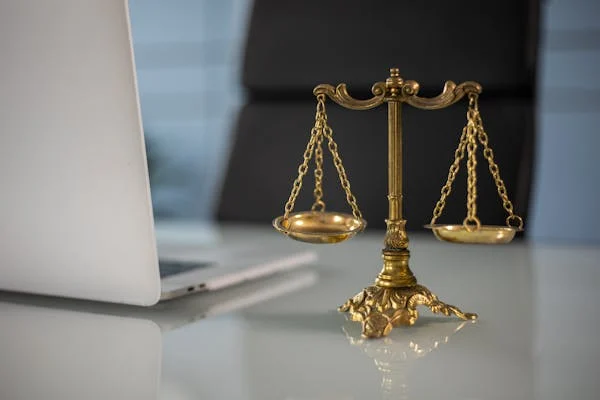Introduction
Innovation is the driving force behind much of the world’s economic and technological growth. Whether it’s a revolutionary new product or a simple improvement to an existing technology, inventions are the cornerstone of progress. However, with invention comes the challenge of protecting intellectual property (IP). This is where patents play a vital role, and why patent lawyers are indispensable.
A patent lawyer is a specialized legal professional who helps inventors secure legal protection for their inventions. They not only help file patents but also represent their clients in patent disputes, ensuring that their intellectual property remains protected from infringement. The value of a patent lawyer lies in their dual expertise in both the technical aspects of an invention and the legal framework governing patents.
What Is A Patent Lawyer?
A patent lawyer is a specialized attorney who focuses on patent law, one of the key areas within the broader field of intellectual property law. Patent lawyers have a unique skill set that combines an understanding of complex technical concepts with a thorough knowledge of legal procedures and regulations surrounding patents.
Their primary responsibility is to assist clients in obtaining patents for their inventions. This includes everything from conducting patent searches to drafting patent applications, filing them with the appropriate patent office (such as the United States Patent and Trademark Office, or USPTO), and defending or enforcing those patents in case of legal disputes.
Patent Lawyer vs. Patent Agent
A common question is the difference between a patent lawyer and a patent agent. While both can assist in filing a patent application, only a patent lawyer is licensed to practice law and represent clients in court. Patent agents are typically qualified to handle patent filings, as they possess the technical expertise to understand inventions, but they do not have the same legal authority to litigate.
Qualifications And Education
Becoming a patent lawyer requires a rigorous educational background. Most patent lawyers have degrees in both law and a technical field such as engineering, biology, chemistry, or computer science. This dual expertise allows them to understand the scientific or technological details of an invention and effectively advocate for its protection in the patent system.
Here’s a typical educational pathway for a patent lawyer:
- Undergraduate Degree in a Technical Field: Many patent lawyers start with a degree in engineering, computer science, biotechnology, or another technical discipline. This helps them grasp the intricacies of their clients’ inventions.
- Juris Doctor (JD) Degree: After completing their undergraduate degree, aspiring patent lawyers attend law school to earn a JD, which is a prerequisite for practicing law in most countries.
- Patent Bar Exam: In addition to passing the state bar exam, patent lawyers must pass the patent bar exam administered by the USPTO (or a similar body in other countries). This certifies that they are qualified to handle patent-related matters.
Types Of Patents
There are three main types of patents that a patent lawyer may help an inventor obtain:
- Utility Patents: These are the most common type of patent and are granted for new, useful inventions or improvements to existing inventions. Utility patents protect the functional aspects of an invention.
- Design Patents: These protect the ornamental design of a functional item. For example, a unique shape or appearance of a product can be protected by a design patent.
- Plant Patents: These are granted to inventors who discover or create new varieties of plants that can be asexually reproduced.
Each type of patent serves a different purpose, and it is important for inventors to know which type applies to their invention. Patent lawyers are experts in determining which patent type is appropriate for each invention and guiding their clients through the application process.
Patent Law And Intellectual Property
Patent law is a subset of intellectual property law, which encompasses a broad range of protections for creations of the mind. This includes copyrights, trademarks, trade secrets, and patents. Patent law specifically deals with the protection of inventions and innovations, giving inventors exclusive rights to their creations.
Patent law operates under a few key principles:
- Novelty: An invention must be new to be eligible for a patent.
- Non-Obviousness: The invention must not be an obvious improvement to an existing technology.
- Utility: The invention must have a useful purpose.
Patent law is governed by national and international frameworks. In the U.S., it is primarily managed by the USPTO, while international treaties like the Patent Cooperation Treaty (PCT) allow inventors to file patents across multiple countries.
Why You Need A Patent Lawyer
Filing for a patent is not as simple as filling out a form and paying a fee. The process requires a deep understanding of both the legal and technical aspects of the invention. This is why hiring a patent lawyer is essential for inventors who want to maximize their chances of obtaining a patent.
A patent lawyer can help with:
- Conducting a Patent Search: Before filing for a patent, it’s crucial to ensure that no similar invention already exists. Patent lawyers conduct comprehensive patent searches to determine if the invention is unique and eligible for patent protection.
- Drafting a Patent Application: The patent application must be detailed and precise, including technical descriptions, drawings, and claims that outline the scope of the invention’s protection.
- Filing with the Patent Office: Patent lawyers are experienced in navigating the often-complex patent office procedures, ensuring that all requirements are met and that the application is processed smoothly.
- Handling Patent Infringement: If another party infringes on your patent, a patent lawyer can help you take legal action to defend your rights.
The Patent Application Process
The patent application process is often seen as daunting due to the numerous steps and legal complexities involved. Here’s a detailed breakdown:
- Invention Disclosure: The inventor must provide a detailed description of the invention, including its purpose, how it works, and how it differs from existing technologies.
- Patent Search: A patent lawyer will perform a thorough search to ensure that the invention has not already been patented or disclosed in prior art.
- Drafting the Application: This is one of the most critical stages. The lawyer will draft a comprehensive patent application, including detailed technical drawings and claims that define the scope of the invention.
- Filing with the Patent Office: The completed application is submitted to the patent office, where it undergoes a formal review.
- Examination: A patent examiner reviews the application to determine if it meets all legal requirements, including novelty and non-Obviousness: The patent examiner evaluates whether the invention is an obvious improvement or combination of existing technologies. If the examiner determines that the invention is novel and non-obvious, it may move forward. If there are issues, the applicant may receive an office action, requiring amendments or clarifications.
- Amendments and Office Actions: The patent office often issues an office action, outlining any concerns or objections to the application. A patent lawyer works with the applicant to respond to these issues, making amendments to the claims or descriptions as necessary. This back-and-forth process can take months or even years depending on the complexity of the invention and the examiner’s concerns.
- Patent Approval: If the patent examiner is satisfied with the application and all objections are resolved, the patent is granted. The inventor will receive a patent certificate, and the invention will be protected for a specified period (usually 20 years for utility patents).
- Post-Grant Procedures: After a patent is granted, the inventor must pay maintenance fees at regular intervals to keep the patent active. If the fees aren’t paid, the patent may lapse, and the invention would enter the public domain.
Patent Search And Patentability Assessment
Conducting a patent search is a vital step before filing a patent application. It helps determine whether the invention is truly new and eligible for patent protection. A thorough patent search involves combing through existing patents, patent applications, and other public disclosures (collectively known as “prior art”) to identify anything similar to the proposed invention.
Patent lawyers are skilled at performing these searches using specialized databases and resources. A comprehensive search helps avoid the risk of filing for a patent on an invention that may already be covered by existing patents. This can save the inventor time, money, and the frustration of having a patent application rejected later in the process.
Patentability Assessment
After the search, a patent lawyer will conduct a patentability assessment, which evaluates whether the invention meets the criteria for patent protection. These criteria include:
- Novelty: The invention must be new and not previously disclosed in the prior art.
- Non-Obviousness: It must be a non-obvious development or combination of existing technologies.
- Utility: The invention must have a practical and useful application.
A patentability assessment helps inventors determine whether it’s worth moving forward with the patent application process.
Patent Infringement And Litigation
Patent infringement occurs when someone uses, sells, or manufactures an invention covered by a valid patent without the patent owner’s permission. If this happens, the patent holder has the right to take legal action to enforce their patent and seek damages. This is where patent lawyers play a critical role.
Types Of Patent Infringement
There are several types of patent infringement:
- Direct Infringement: This occurs when someone makes, uses, or sells the patented invention without permission.
- Indirect Infringement: This can happen in two ways:
- Induced Infringement: Encouraging someone else to infringe on a patent.
- Contributory Infringement: Supplying components that are used to infringe on a patent.
- Wilful Infringement: This is when someone knowingly infringes on a patent, and it can lead to higher penalties in court.
How Patent Lawyers Handle Infringement Cases
If a patent holder believes their patent has been infringed upon, a patent lawyer will help them pursue legal remedies. This typically involves sending a cease-and-desist letter to the infringer, demanding they stop using the patented invention. If the infringer refuses to comply, the patent lawyer may file a lawsuit on behalf of the patent holder.
In court, patent litigation can be complex and expensive. Patent lawyers must build a strong case, gathering evidence and presenting arguments to prove that the defendant has infringed on the patent. In many cases, these lawsuits are settled out of court, but if they go to trial, the outcome can result in significant financial compensation for the patent holder.
Costs And Fees Of Hiring A Patent Lawyer
The cost of hiring a patent lawyer can vary significantly depending on the complexity of the invention and the scope of the patent work required. However, it’s important to understand that patent lawyers typically charge more than general practice attorneys due to the specialized nature of their work.
Fee Structures
- Flat Fee: Many patent lawyers offer flat fees for specific services such as conducting a patent search, drafting a patent application, or responding to an office action. This fee structure is often preferred by inventors because it provides cost certainty upfront.
- Hourly Rate: Some patent lawyers charge by the hour, particularly for more complex cases or ongoing litigation. Hourly rates for patent lawyers can range from $200 to $500 or more, depending on their experience and location.
- Contingency Fee: In some patent infringement cases, a lawyer may work on a contingency basis, meaning they only get paid if they win the case. This arrangement is less common in patent law compared to personal injury law, but it can be used in specific cases where there’s a high likelihood of a successful outcome.
While hiring a patent lawyer can be costly, it’s often a necessary investment to ensure that the patent application is properly handled and that the inventor’s rights are protected.
Choosing The Right Patent Lawyer
Selecting the right patent lawyer can be a daunting task, especially for first-time inventors or small businesses. Here are a few key factors to consider when choosing a patent lawyer:
- Technical Expertise: Look for a lawyer with a background in the specific technical field related to your invention. This ensures they understand the nuances of your invention and can accurately describe it in the patent application.
- Experience: Patent law is highly specialized, so it’s important to choose a lawyer who has extensive experience in this field. Ask for references and inquire about their success rate with similar patent applications.
- Communication: The patent process can be long and complicated, so it’s crucial to work with a lawyer who communicates clearly and keeps you updated on the progress of your application.
- Specialization: Some patent lawyers specialize in certain types of patents, such as software patents, biotechnology patents, or design patents. Make sure the lawyer you choose has experience with the type of patent you need.
- Location: While it’s not always necessary to work with a local lawyer, some inventors prefer to have in-person meetings. If this is important to you, consider hiring a patent lawyer who practices in your region.
Patent Lawyer For Start-ups
Start-ups and small businesses often face unique challenges when it comes to protecting their intellectual property. With limited resources and a need to move quickly, start-ups must strike a balance between securing patent protection and managing their budgets.
Patent lawyers who specialize in working with start-ups can offer valuable guidance, helping entrepreneurs navigate the complexities of patent law while keeping costs manageable. They can also advise start-ups on strategic IP management, such as when to file for patents, how to prioritize which inventions to protect, and how to leverage IP to attract investors.
Patent Law Across Different Jurisdictions
Patent law varies significantly from country to country, and inventors seeking international protection must be familiar with the differences in patent laws across jurisdictions. A patent lawyer can guide inventors through the process of securing patents in multiple countries.
United States Patent Law
In the U.S., patents are granted by the USPTO. The process can take several years, depending on the complexity of the invention and the workload at the USPTO. U.S. patents are generally valid for 20 years from the date of filing, provided that maintenance fees are paid.
European Patent Law
In Europe, inventors can apply for patents through the European Patent Office (EPO). A single European patent application can cover multiple countries, making it an efficient way to obtain patent protection across Europe.
Patent Law In China And India
Both China and India have rapidly evolving patent systems as their economies continue to grow. In China, patent protection is becoming increasingly important for both domestic and international inventors. India, with its booming pharmaceutical and technology sectors, has also seen a rise in patent filings in recent years.
Famous Patent Disputes
Patent disputes have played a significant role in shaping the landscape of patent law. Some of the most famous patent disputes include:
- Apple vs. Samsung: This high-profile case involved a battle over smartphone patents, with both companies accusing each other of infringing on various design and utility patents. The case led to significant changes in the way patent law is applied to technology products.
- The Wright Brothers’ Patent Dispute: The Wright brothers famously defended their patent for the airplane in a lengthy legal battle with Glenn Curtiss, who had developed a competing aircraft design. The dispute highlighted the importance of robust patent protection in pioneering industries.
- Kodak vs. Polaroid: Kodak was sued by Polaroid in the 1970s for infringing on Polaroid’s patents for instant photography. Polaroid ultimately won the case, and Kodak had to pay substantial damages and stop producing its instant cameras.
These cases demonstrate the critical role patent lawyers play in defending inventors’ rights and how patent law evolves over time.
The Future Of Patent Law
Patent law is constantly evolving in response to new technological developments. Emerging fields like artificial intelligence (AI), biotechnology, and blockchain technology present new challenges for patent lawyers.
- Artificial Intelligence and Patents: AI is changing the way inventions are created, raising questions about whether AI-generated inventions can be patented. Patent offices around the world are beginning to explore how to handle AI-generated inventions, and patent lawyers will play a key role in shaping these discussions.
- Biotechnology and Patents: The rapid advancements in biotechnology, especially in areas like genetic engineering, CRISPR, and personalized medicine, have raised complex patent issues. For example, the CRISPR-Cas9 gene-editing technology has sparked major patent battles, with multiple organizations claiming rights to this ground breaking discovery. Patent lawyers specializing in biotechnology must navigate these rapidly evolving areas of law, ensuring that inventors receive appropriate protection for their innovations.
- Blockchain and Patents: Blockchain technology, known for its decentralized and secure nature, is being patented for various applications, including financial systems, supply chain management, and even IP protection itself. As more companies seek to patent blockchain-based inventions, patent lawyers will need to stay ahead of this fast-moving sector.
The Role Of Patent Lawyers In Emerging Technologies
As technology advances, patent lawyers must adapt to new legal challenges. They must be knowledgeable about the latest innovations in fields like AI and biotechnology while understanding how traditional patent law applies to these modern inventions. The future of patent law will likely involve more international cooperation, as inventors seek protection in multiple jurisdictions. Patent lawyers will play a vital role in shaping how these new technologies are regulated and protected.
Patent Lawyer vs. Intellectual Property Lawyer
While patent lawyers are a type of intellectual property (IP) lawyer, their focus is specifically on patents, whereas general IP lawyers handle a broader range of intellectual property matters. Here’s how they differ:
- Patent Lawyers: These attorneys specialize in obtaining patents and handling patent-related disputes. Their work is highly technical, often requiring a deep understanding of science, engineering, or technology. Only patent lawyers who are registered with a national patent office (such as the USPTO) can file and prosecute patents.
- Intellectual Property Lawyers: IP lawyers, on the other hand, handle a wide variety of issues related to intellectual property, including trademarks, copyrights, and trade secrets. They may work on licensing agreements, brand protection, or copyright infringement cases. While IP lawyers can also handle patent disputes, they may not have the technical expertise required to draft patent applications or navigate complex patent systems.
When To Hire A Patent Lawyer
If you have an invention or innovation that you want to protect, hiring a patent lawyer is essential. A patent lawyer will help ensure that your invention is patentable, assist with the application process, and defend your rights if your patent is infringed. If you’re dealing with broader intellectual property issues, such as brand protection or copyright infringement, an IP lawyer may be more appropriate.
Conclusion
Patent lawyers are critical to protecting the innovations that drive progress in industries ranging from technology to medicine. Their expertise in navigating the complexities of patent law ensures that inventors can secure exclusive rights to their inventions, helping to prevent others from profiting from their hard work and creativity. Whether you’re a start-up founder looking to patent a new product or a large corporation defending your patents in court, a patent lawyer can be an invaluable ally.
The world of patents is complex and constantly evolving, but with the guidance of a skilled patent lawyer, you can navigate the challenges of intellectual property protection with confidence.
Read Also:



